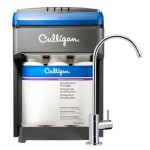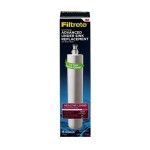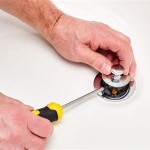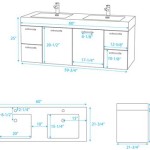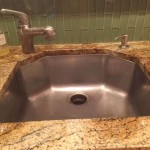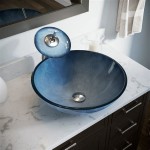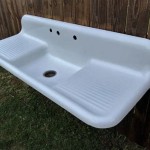Shining and Sturdy: Pros and Cons of a Copper Kitchen Sink
Copper kitchen sinks bring a unique warmth and old-world charm to any kitchen. Their living finish, antimicrobial properties, and durability make them a popular choice for homeowners seeking a distinctive look. However, like any material, copper sinks have advantages and disadvantages that require careful consideration before purchase.
Pros of Copper Kitchen Sinks
Copper sinks offer a range of benefits that contribute to both their aesthetic appeal and practicality:
* Aesthetically Pleasing: Copper's warm, inviting tones add a touch of elegance and rustic charm to kitchen spaces. The metal's natural patina develops over time, creating a unique and evolving look. * Antimicrobial Properties: Copper possesses inherent antimicrobial properties, inhibiting the growth of bacteria and other microorganisms on its surface. This contributes to a more hygienic kitchen environment. * Durability: Copper is a robust material resistant to scratches, dents, and chips. With proper care, a copper sink can last for generations. * Recyclable Material: Copper is a highly recyclable material, making it an environmentally friendly choice for homeowners concerned about sustainability. * Low Maintenance: Copper sinks require minimal maintenance to retain their beauty and functionality. Regular cleaning with mild soap and water is typically sufficient. * Heat Resistant: Unlike some sink materials, copper is highly resistant to heat damage from hot pots and pans.Cons of Copper Kitchen Sinks
While copper sinks offer many advantages, potential downsides must be considered:
* Cost: Copper sinks are generally more expensive than stainless steel or porcelain options. This higher initial investment should be factored into the overall budget. * Patina Development: While some appreciate the evolving patina of copper, others may find the changing color unpredictable or undesirable. The development of a patina can also be uneven, leading to a mottled appearance. * Maintenance for Consistent Color: Maintaining a consistent copper finish can require more effort than with other materials. Special copper cleaners and waxes may be necessary to prevent spotting or discoloration. * Susceptibility to Acids: Copper is reactive to acidic substances, including certain foods and cleaning products. Contact with these materials can cause discoloration or etching. * Soft Metal: Though durable, copper is a relatively soft metal compared to some alternatives. This means it can be prone to scratches and dents, requiring care when handling heavy cookware. * Water Spotting: Hard water can leave spots on the surface of a copper sink, requiring more frequent cleaning and polishing in areas with high mineral content water.Choosing the Right Copper Sink
Selecting the right copper sink involves understanding the various types available:
* Gauge: The gauge refers to the thickness of the copper. Lower gauge numbers indicate thicker copper. A lower gauge (e.g., 14-16 gauge) is generally recommended for kitchen sinks for increased durability. * Construction: Copper sinks can be manufactured through hammering or machine pressing. Hammered sinks offer a more artisanal look, while machine-pressed sinks tend to be more uniform. * Finish: Copper sinks are available in various finishes, including smooth, hammered, and antique. Each finish offers a distinct aesthetic and affects how the patina develops.Caring for a Copper Sink
Proper care is essential for preserving the beauty and longevity of a copper sink:
* Daily Cleaning: Clean the sink daily with mild soap and water, rinsing thoroughly to prevent water spots. * Avoid Abrasive Cleaners: Harsh chemicals and abrasive cleaners can damage the copper finish and should be avoided. * Address Spills Promptly: Wipe up acidic substances like lemon juice or vinegar immediately to prevent etching. * Periodic Waxing: Applying a copper wax can help protect the finish and prevent discoloration.Comparing Copper Sinks to Other Materials
Understanding how copper compares to other common sink materials can aid in the decision-making process:
* Copper vs. Stainless Steel: Copper offers a warmer aesthetic and antimicrobial properties compared to stainless steel, but it is typically more expensive and requires more specialized care. Stainless steel is more resistant to scratches and easier to maintain. * Copper vs. Fireclay: Copper is lighter and less prone to chipping than fireclay. Fireclay offers a classic farmhouse look, while copper provides a more rustic or antique feel. * Copper vs. Composite Granite: Copper is more susceptible to scratches and dents than composite granite. However, copper offers antibacterial benefits and a unique, evolving aesthetic that composite granite lacks.By carefully weighing these pros and cons, homeowners can make an informed decision about whether a copper sink is the right choice for their kitchen.

Copper Kitchen Sinks Pros Cons And More Angi

Pros And Cons Of Hammered Copper Kitchen Farmhouse Sink Coppersmith

Copper Kitchen Sink Pros And Cons Is It A Good Idea

Pros And Cons Of Hammered Copper Kitchen Farmhouse Sink Coppersmith

Copper Kitchen Sinks Pros Cons And More Angi

Pros Cons Of Copper Kitchen Sinks Coppersmith Creations

Copper Kitchen Sink Pros And Cons Is It A Good Idea

Pros And Cons Of Hammered Copper Kitchen Farmhouse Sink Coppersmith

Pros And Cons Of Hammered Copper Kitchen Farmhouse Sink Coppersmith

Pros And Cons Of Farmhouse Sinks My Honest Review Hudsonfarmhouse
See Also
